Stay up to date with
the latest resources
from Continuity2
Articles from our team and words from our clients

What Is a Post-Mortem Meeting, and How to Conduct
Learn what makes a successful post-mortem meeting, its purposes and benefits, as well as example questions.
READ MORE ❯

Business Continuity Conferences in 2025
Discover business continuity conferences and events to attend to keep you at the forefront of practices and trends in business continuity and risk management.
READ MORE ❯

What is ISO 31000 Risk Management Standard?
Understand ISO 31000, its structure, principles, processes, and benefits for your business.
READ MORE ❯
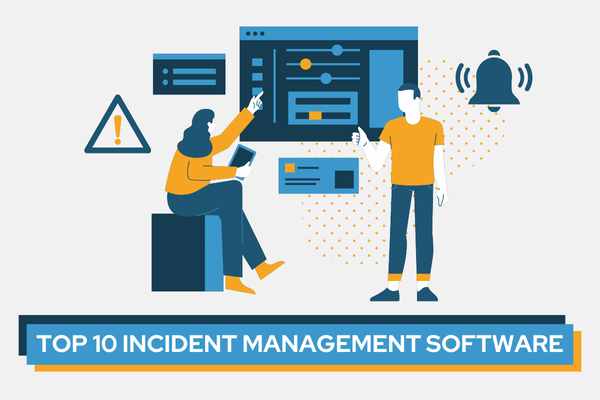
10 Best Incident Management Software of 2024
Here are the best incident management tools on the market and the benefits and solutions they can offer you.
READ MORE ❯

A Business Guide to Types of Audit
Learn more about audits and the different types a company may be required to complete.
READ MORE ❯

What Is Risk Appetite?
Learn about risk appetite in enterprise risk management, its definition, importance, and how to effectively create a risk appetite statement.
READ MORE ❯

7 Scenario Tests Financial Institutions Need to Run to Ensure Operational Resilience
Discover the 7 essential scenario tests financial institutions must run to ensure operational resilience and regulatory compliance.
READ MORE ❯

What Is Operational Resilience, and How to Build an Operational Resilience Framework
Operational resilience is the ability of an organisation to quickly adapt and recover from disruptive events and minimise the impact on stakeholders.
READ MORE ❯

What Is Stress Testing in Risk Management
Stress testing is a common risk management process that helps to confirm that a planned business strategy can hold during specific scenarios.
READ MORE ❯
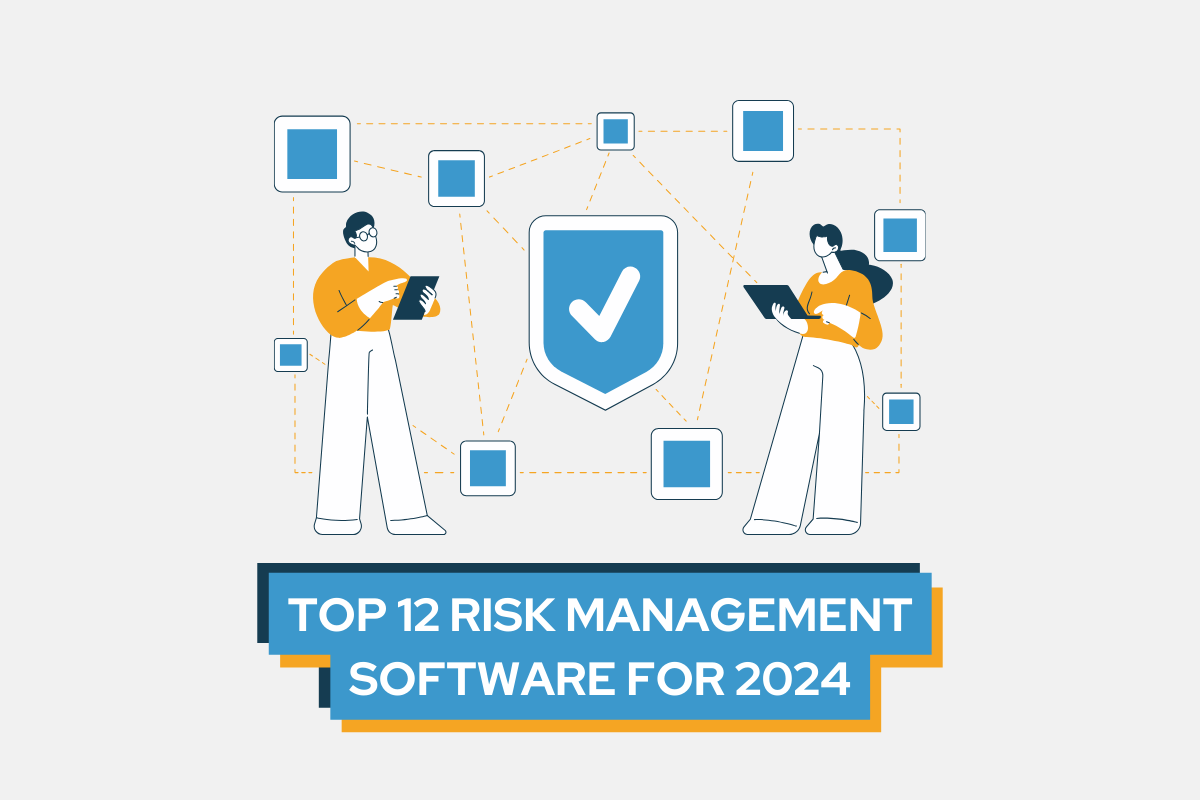
12 Best Risk Management Software of 2024
A deep dive into what risk management software really is for, with some of the best options in the market.
READ MORE ❯

Business Continuity in Biotech, Pharma, and Life Sciences
When disaster strikes, biotech businesses should have reliable and tested plans in place that they can use to mitigate the impact of the issue and ensure operational resilience.
READ MORE ❯

Developing a Business Continuity Plan for a Pandemic
The coronavirus outbreak of 2020 brought mass disruptions to many areas of our lives, least of all to business operations across the world. The truth is simply that we were not prepared for a pandemic of this scale.
READ MORE ❯
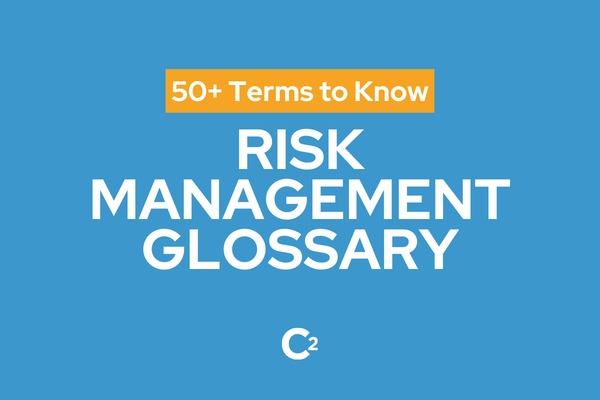
Risk Management Glossary
We've collected the most important risk management terms here to help you get to grips with some of the terminology used in this area.
READ MORE ❯

What is business resilience?
What helps organisations protect and maintain their business operations? Preparation, business continuity planning and resilience are essential components of an effective strategy.
READ MORE ❯

Everything You Need to Know about DORA
What is DORA? The Digital Operational Resilience Act (or DORA, for short) is a new regulation designed to impact financial entities that operate across the European Union.
READ MORE ❯

How Supply Chain Diversification Can Strengthen Your Operational Resilience
Explore key challenges, benefits, and best practices for supply chain diversification, and how you can use it to maintain operational resilience.
READ MORE ❯
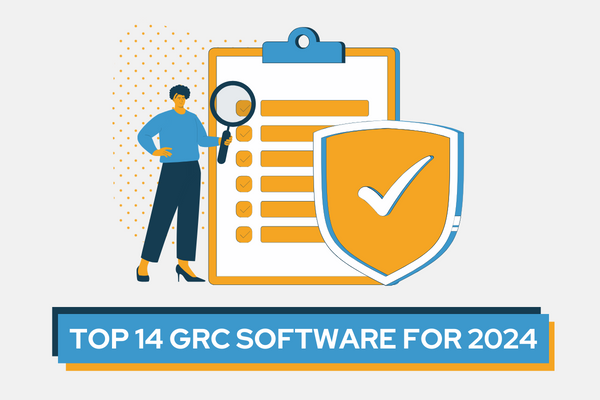
Top 14 Governance, Risk, and Compliance (GRC) Software for 2024
A deep dive into what GRC software really is for, with some of the best options in the market and what they can offer your business.
READ MORE ❯

Understanding Risk Categories
Understand the importance of risk categories and how they can be applied to a company-wide risk management framework in our blog here.
READ MORE ❯

Top 12 Enterprise Risk Management Software (ERM Software) for 2024
Dive into what ERM software is, how risk professionals can utilise its key features to aid in developing and implementing ERM strategies.
READ MORE ❯

What Is Governance, Risk, and Compliance?
Dive into the importance of GRC in modern business, its key components, and how it impacts organisational strategy and operations.
READ MORE ❯

Key Risk Management Statistics and Insights for 2024
The latest statistics and insights in risk management, offering a comprehensive overview of current trends and future projections.
READ MORE ❯

Key Strategies for Enterprise Resilience
How can businesses cultivate resilience? Discover the key aspects of enterprise resilience and how to thrive amidst challenges.
READ MORE ❯

How to Become a CISSP Certified Information Systems Security Professional
What exactly is CISSP, and how can it advance your career? Find how everything you need to know about the CISSP certification.
READ MORE ❯

Risk, Emergency and Business Continuity Management (REBCM) Conference 2023
With the themes of the REBCM conference aligning perfectly with our mission to transform operational resilience, we're delighted to join business continuity community leaders and lend our voice to industry conversations.
READ MORE ❯

5 Benefits of Business Continuity in the Cloud
Our guide explores why the combination of business continuity and cloud computing is a strategic choice yielding multifaceted advantages.
READ MORE ❯

What Is Business Continuity Plan and How to Create One?
Shield your business from unseen issues and common industry threats: discover our expert tips for creating a robust business continuity plan.
READ MORE ❯

Key Components of a Business Continuity Plan
Explore the key components of a robust business continuity plan so you can successfully prepare for any threats and effectively protect your business.
READ MORE ❯

Business Continuity Exercises & 6 Scenarios
Our guide outlines how your company can develop a strong business continuity plan and be prepared for anything.
READ MORE ❯

10 Best Practices for Effective Business Continuity Strategy
Learn how to build an effective business continuity strategy that ensures your business can continue its critical functions during and after a disaster.
READ MORE ❯

Business Continuity Plan Consulting
Learn why hiring industry experts to develop, execute, and maintain your company’s disaster response plan can save you money and boost your business resilience.
READ MORE ❯

A Guide to ISO 27001 Business Continuity Policy
An ISO 27001 business continuity plan template should include four major components that outline what to do in case of an emergency or serious incident.
READ MORE ❯

Business Continuity Roles and Responsibilities
The formation of a business continuity team is a strategic step any organisation can take that could significantly enhance the effectiveness of their business continuity plan.
READ MORE ❯

Key Differences Between Business Continuity vs Disaster Recovery
Business continuity and disaster recovery are closely related yet different concepts. Here's how they serve different purposes within the framework of organisational resilience.
READ MORE ❯

Risk Treatment (With Examples)
The successful risk management strategy should include risk treatment and the assessment of possible consequences, and a solution to deal with risks in the most strategic way.
READ MORE ❯

BCM Lifecycle: 5 Stages of Business Continuity Lifecycle
Business Continuity Lifecycle is essential to guide the development of your business continuity plan and ensure your operations can withstand even the most disruptive events.
READ MORE ❯

How to Create a Business Continuity Plan For Small Business (With Examples)
How long can my business afford to be non-operational? This is where business continuity planning for small business comes in to ensure your company can function during a crisis.
READ MORE ❯

Key Benefits of Business Continuity Planning
From security to trust: discover all the benefits of business continuity planning in a crisis and strengthen your capacity to withstand unexpected events.
READ MORE ❯

40+ Cybersecurity Statistics for 2024 and Beyond
Latest data-driven insights into the cybersecurity landscape from the UK Home Office, IBM, World Economic Forum, and more.
READ MORE ❯

How to Make Business Continuity a Part of Your Organisational Culture
Embedding business continuity into an organisation culture ensures you sustain business-as-usual activities and raise awareness about the value of business resilience.
READ MORE ❯

Enhancing EPRR in Healthcare Business Continuity Efforts
Incidents are inevitable and their impact on the healthcare industry is significant. Organisations must proactively plan ahead to ensure continuity in the delivery of patient care.
READ MORE ❯

Business Continuity Incident Examples
As part of business continuity planning, businesses must develop a comprehensive BC plan in order to mitigate risks and remain operational in the face of disruption.
READ MORE ❯

How to Build and Maintain Cyber Resilience in Financial Services Sector
Since financial institutions play a crucial role in the economy, firms must be at least one step ahead in improving cyber resilience.
READ MORE ❯

Business Continuity Planning for Remote Work
How do you plan business continuity when you have remote staff? Let take a closer look into the impact of remote working when building a business continuity strategy.
READ MORE ❯

Governance, Risk, and Compliance: How GRC Impacts Business Continuity Planning
Any business leader knows how vital the GRC Capability Model can be to reliably achieve objectives. But how can you integrate it into your existing business continuity plans?
READ MORE ❯

Communicating in a Crisis: 10 Step Strategy for Public Sector Organisations
Effective communication is critical in aligning your priorities and efforts with stakeholders, community organisations, and the media. You must have a unified response.
READ MORE ❯

Crisis Communication Best Practices
How do you plan and manage crisis communications? Since it plays a critical role in your crisis response plan, giving it enough thought and consideration is essential.
READ MORE ❯

Top 10 Mistakes to Avoid in Your Business Continuity Management Plan
Learn how to avoid common mistakes in business continuity management to maximise your operational resilience and protect your company.
READ MORE ❯

What is Business Continuity Planning?
Business continuity planning is a critical component of an organisation risk management strategy because it helps a business continue operating even during unplanned events
READ MORE ❯

Supply Chain Transparency: The Role in Business Continuity Planning
All companies should prioritise complete transparency. Let's dive into the benefits of maintaining a transparent supply chain and how it impacts your business continuity planning.
READ MORE ❯

Integrated Risk Management
Risk is part of running a business. The earlier you recognise, identify and manage risk, the better it will be for your business. This is what integrated risk management is about.
READ MORE ❯

Operational Resilience vs Business Continuity
Find out what operational resilience and business continuity are as well as their key differences here.
READ MORE ❯

Managing Risk and Resilience in Hybrid Work Environments
Hybrid models are not without challenges and risks. It is crucial to focus on managing those risks and building workforce resilience to succeed with this work model.
READ MORE ❯

What is BCP testing?
Testing the business continuity plan is a must to ensure that the strategy you have in place is the best at managing your perceived risks and threats.
READ MORE ❯

What Is Business Continuity?
Here's everything you need to know about business continuity, its benefits, and how to build yourself a BC plan.
READ MORE ❯

Crisis Management Team: Function, Roles & Responsibilities
A guide to helping you build an effective crisis management team who can help you prepare for and overcome and business crises that come your way.
READ MORE ❯

How to Prevent Ransomware Attacks
Ransomware attacks are on the rise and getting more sophisticated all the time. Here's what you need to know to protect yourself from this particular cyber crime.
READ MORE ❯

The Role of a Resilience Manager
It takes a resilient manager to lead on operational resilience. So what's the role of a Resilience Manager and what key characteristics will serve them well?
READ MORE ❯

BUSINESS IMPACT ANALYSIS (BIA)
Your Business Impact Analysis (BIA) is an essential part of your Business Continuity and Resilience planning. Here's everything you need to know about it...
READ MORE ❯

How to Choose the Best Business Continuity Software
Investing in BC software can significantly improve your operational resilience & business continuity management. Here are some key factors to consider when making the decision.
READ MORE ❯

8 Skills Business Continuity Managers Need to Succeed
Business continuity specialists are sometimes under-appreciated. Their knowledge and skills often prove invaluable assets that every business owner would love to have on board.
READ MORE ❯

20 Questions to Ask When Prioritizing Your Policy Development Efforts
It is a well-known fact that no business can operate properly without a set of distinct policies in place.
READ MORE ❯

How to prepare disaster recovery and business continuity plan
When planning a business, many people focus on elements that will provide stability, from finding a competitive advantage to setting up reliable supply chains for their products.
READ MORE ❯

7 Common Business Continuity Myths
When hearing the phrase "business continuity," many people think about unexpected natural disasters or the need to protect client data.
READ MORE ❯

Crisis Communications Training Exercises to Implement
Crisis management training is crucial for ensuring the organisation's survival regardless of the industry in which it operates.
READ MORE ❯

Third-Party Risk Management
If you run a business, it's more than likely that you rely on other people, companies and organisations to operate smoothly.
READ MORE ❯

Why You Need to Keep Your BCM Plans Up to Date
Determining critical functions, recognising potential threats, and meeting regulatory requirements are only a few examples of factors firms need to consider during this process.
READ MORE ❯

Cyber Threats: How to Protect Consumer Data
In today's day and age, the threat of a cyber-attack looms over every company.
READ MORE ❯

Can Business Continuity Be a Tool to Minimise the Impact of Political Unrest?
How can business continuity help companies during political unrest? Find out how a good continuity plan can minimise potential impact here.
READ MORE ❯

How to Plan for the Cost of Unplanned Downtime
According to the report created by the General Electric Company, offshore oil and gas organisations suffer financial losses from unplanned downtime every year.
READ MORE ❯

IT Disaster Recovery Management
We don't often think of the worst-case scenario, but inevitably it is bound to actually happen to some businesses
READ MORE ❯

BoE / FCA / PRA - Operational Resilience Within C2's Meridian BCMS
The BoE, FCA, and PRA published their final policy for Operational Resilience on the 29th of March 2021 centred around analysing and protecting the Important Business Services.
READ MORE ❯

Prepare for Planned and Unplanned Downtime
Many organisations are unsure of the best way to handle planned and unplanned downtime. This article discusses the key elements to consider.
READ MORE ❯

How to Identify Single Point of Failure and Ensure Continuity
Single points of failure can bring your whole system to a standstill, or at best - bring it to "limp mode". If you have ever worked on a car, you know what this means.
READ MORE ❯

5 Approaches to Risk-Based Internal Audits
In this article we discuss the five most common approaches Risk-Based Internal Audits. Read on to see which one would be most suitable for your current business model.
READ MORE ❯

Post-Incident Analysis
In this article, we're going to take a look at the key elements of Post-Incident Analysis, as well as why it is important to carry them out after major disruptions.
READ MORE ❯

Cascade Effects in Business Continuity Planning
In this article we going to look at one key area that is one of the primary reasons business continuity planning and business impact analysis are so difficult: cascade eff
READ MORE ❯

Understanding Inherent vs. Residual Risk in Business Continuity
In the uncertain and often fierce world of business and commerce, a single mistake can result in bankruptcy or set a company back years.
READ MORE ❯

A Look Back on C2's 2019
New product, new staff, new clients, and more. Here's a look back on another amazing year of growth for C2.
READ MORE ❯
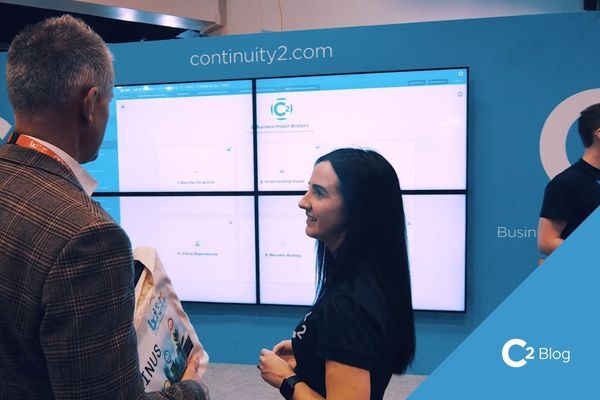
Check out our video from BCI World 2019!
We exhibited at the 2019 BCI World conference and made a little video recap of what we got up to. Check out our highlights here!
READ MORE ❯

See an easier way, C2 at BCI World 2019
Join us at Stand 41 at the BCI World 2019 in London!
READ MORE ❯

Health & Safety and Business Continuity
For a business to survive during a Business Continuity incident, safety must be a top priority during the recovery process.
READ MORE ❯

Crisis Response in the Education Sector
Here we take a look at what might cause an educational facility to invoke a Business Continuity Plan and some key elements to consider when doing so.
READ MORE ❯

The rise of the cyber attack
Just what is causing the increase in cyber attacks we are experiencing, and what can we do to protect our businesses from it?
READ MORE ❯

Business Impact Analysis vs Risk Assessment: How do They Work Together?
A risk assessment helps identify potential threats, while the BIA helps prioritise which processes are most critical to the business. Both are key components of a BCP.
READ MORE ❯

How to win organisational engagement in Business Continuity
It is imperative that you embed Business Continuity into your company culture to allow for a successful BCMS. Here are some tips and tricks on how to do that
READ MORE ❯

Business Continuity in the Transport & Logistics Sector
Whether logistics makes up part of your supply chain, or is your entire business, it is essential you consider Business Continuity Planning.
READ MORE ❯

Should you be planning for Brexit?
Brexit is likely to affect key business activities, your customers, staff, supply chain and contracts.
READ MORE ❯

The Initiation of BCM: How to Get Management Buy-in
What is the best way to go about obtaining buy-in for a BCMS?
READ MORE ❯

Business Continuity Management in the Finance Sector
Learn how financial firms can stay secure from cyber threats and IT outages with robust business continuity, compliance, and resilience strategies.
READ MORE ❯
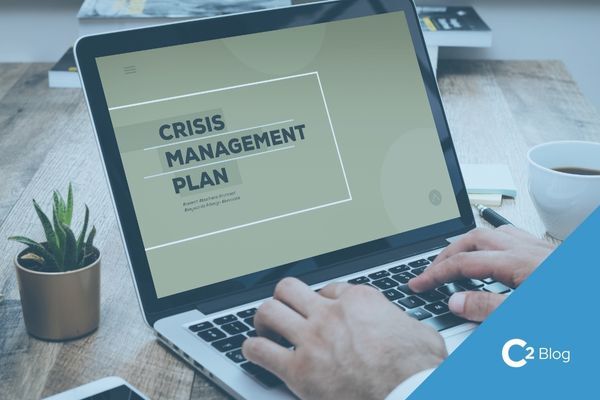
3 Stages of an Organisational Crisis
Understand the key differences between Crisis Management and Business Continuity. Learn to manage crises effectively and how C2 Meridian can help.
READ MORE ❯

How to Establish Business Continuity Policy
The BCM Policy is an important document, setting out the scope of the Business Continuity programme. Find out how to establish this policy here.
READ MORE ❯

What Are The Relationships Between Disaster Recovery, Risk Management and Business Continuity?
Running a business comes with challenges, and managing risks is one of them. Disaster recovery, risk management and business continuity are essential to ensure sustainability.
READ MORE ❯

Business Continuity Management in the Energy Sector
In this article we will investigate the kind of factors which might affect operations within the energy sector.
READ MORE ❯

Should social media be included within a BCMS?
What part should social media play within a business continuity management system? We explore the good, the bad, and the ugly here.
READ MORE ❯

The Development of Business Continuity Management
How has the BCM discipline evolved since its conception?
READ MORE ❯

What are the main drivers for Business Continuity Management?
Every business will have their own reasons and drivers for implementing business continuity management.
READ MORE ❯

SBRC Extreme Weather Resilience Workshop
The SBRC hosted an Extreme Weather Business Resilience Workshop
READ MORE ❯
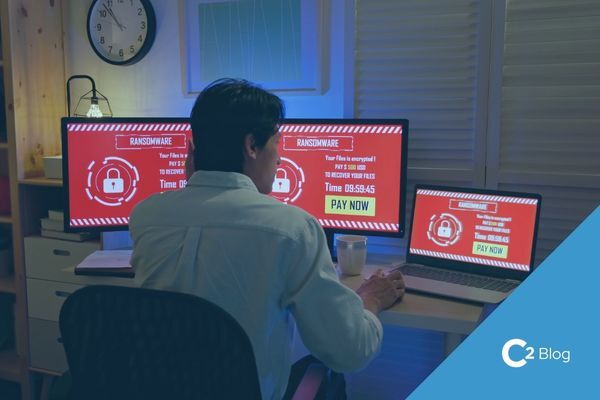
Cyber security Risk management: preventative and reactive controls
To understand the importance of building a solid cyber risk management strategy, you must first understand the scale of the cyber threat in the information security industry today.
READ MORE ❯

The Importance of Crisis Communication During a BC Incident
A crisis communication plan consists of a set of procedures and protocols that a business uses as a guide, so you know what to do during crisis situations.
READ MORE ❯

Business Continuity in the Public Sector
Find out about how business continuity works within the public sector, and how software can improve the process
READ MORE ❯

How Do I Get Certified to ISO 22301?
Here's everything you need to know about ISO 22301: Business Continuity Management Systems (BCMS).
READ MORE ❯
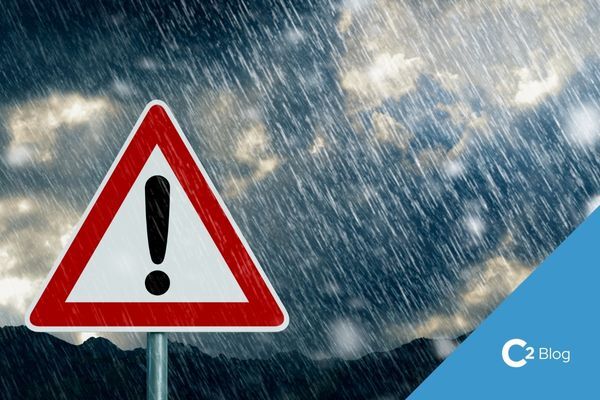
Are you winter ready?
Winter is fast approaching and here at C2 we want to help you prepare in the best way possible.
READ MORE ❯

What Is Business Continuity Management?
Learn how Business Continuity Management (BCM) can proactively prepare organisations and their staff to cope in times of disruption.
READ MORE ❯

Making Business Continuity Easier With a UX Approach
Need BCM Software that looks great? Easy to use? Simple? Effective? Our Head of Digital talks us through why C2's Meridian BCMS is head and shoulders above our competitors.
READ MORE ❯